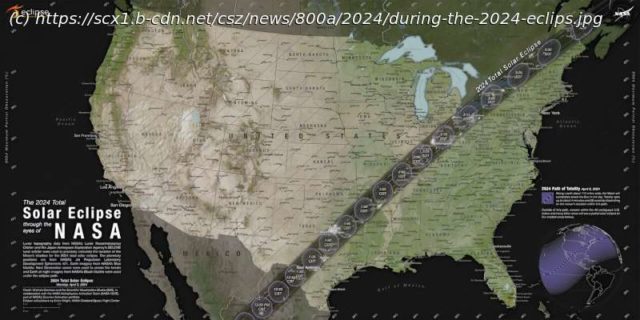The total solar eclipse on April 8, 2024, coincides with an exciting time for wild birds. Local birds are singing for mates and fighting for territories as they gear up for their once-a-year chance to breed.
The total solar eclipse on April 8, 2024, coincides with an exciting time for wild birds. Local birds are singing for mates and fighting for territories as they gear up for their once-a-year chance to breed.
Tens of millions of migrating birds will be passing through the path of totality, and they mostly migrate at night.
Because birds use light to match their behaviors to their environment, scientists like us have lots of questions about how they will respond to the eclipse. Will they pause their fighting and wooing and shift toward bedtime-like behaviors? How about a nocturnal animal like an owl or those nighttime migrants—will they start to rustle from their roosts before they realize it’s not night?
As behavioral biologists at Indiana University, we research wild breeding birds, with a goal of understanding why animals behave the way that they do in response to environmental challenges and opportunities. For the 2024 eclipse, our team is launching a new project and developing an app. If everything goes as planned, we should end up with a large dataset after the eclipse, collected by community scientist volunteers across the country.
On average, a total solar eclipse occurs in the same place only once every 375 years. Most wild animals, like most people, have never seen the sky quickly switch to night in the middle of the day. These rare events are a natural experiment that can help scientists like us understand how animals respond to an unusual sudden change in light.
Most past research on animal behavior during total solar eclipses is anecdotal. Observers have reported that zoo animals acted distressed or went into their enclosures. Scientists have spotted spiders starting the nightly deconstruction of their webs in the middle of the day, and farmers have heard their roosters start to crow after totality, as if it’s once again dawn. Other reports suggest more subtle effects on animal behavior.






